|
The Veneer Hammer by Alf Murtell |
|
|
A marquetry tool not often used, or found, these days is the Veneer Hammer. Although it is known as a hammer, it is not actually used as a hammer, it is used more in the fashion of a squeegee or a pestle in order to 'squeeze'out air bubbles or excess glue. The veneer hammer consists of a wooden head about 5 inches (or 125mm) width by about 3 inches (75mm) depth and half an inch (12.5mm) thickness. A one sixteenth of an inch (approx 1.5mm) slot is cut in the "face" or flat end of the wooden head. Into this slot is fitted a round or curved edge metal blade of a non rusting nature that will not react chemically with the tannins found in certain veneers. The wooden head is fitted with a convenient handle which will, in truth, actually act as more of a balancing element rather than a basic handle. In fact, as you will see in the following photos, veneering professionals normally use the veneer hammer with the handle facing away from them. When the veneer hammer is used to lay
the veneer to the base board (with a reasonably quick drying
glue), the veneer hammer is used so as to work in the direction
of the main grain of the veneers in a zigzag fashion, from the
centre of the veneer arrangement outwards towards the edges.
This action will squeeze out and exude any air bubbles and
surplus glue and will ensure an excellent bond. It is used in a
similar manner to the rocking motion cooks use when chopping
herbs with those curved or rounded herb choppers (Mezzaluna).
The difference here is that you are using the hammer to
"squeeze" and not cut - and, of course, you are moving it over
the entire surface of your work to perform the prescribed
ultimate task. |
|
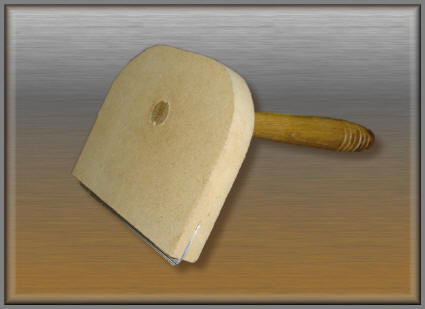 The wooden head with the non-ferrous blade fitted |
|
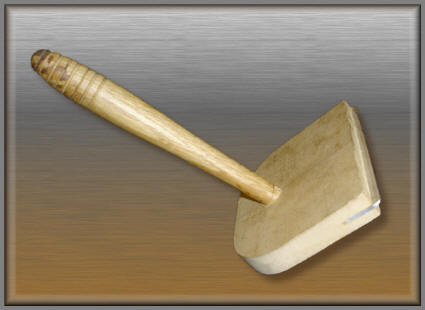 The handle fitted to the wooden head |
|
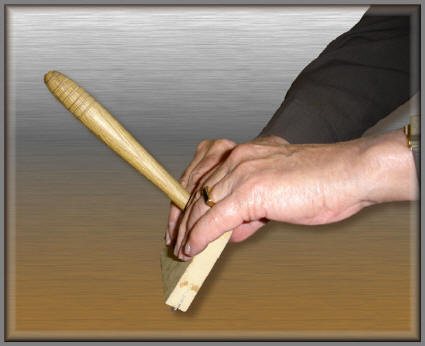 This is the normal way to use the veneer hammer |
|
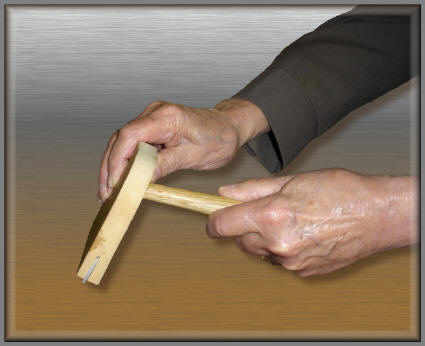 Poor results will be the only thing achieved if used this way |
|
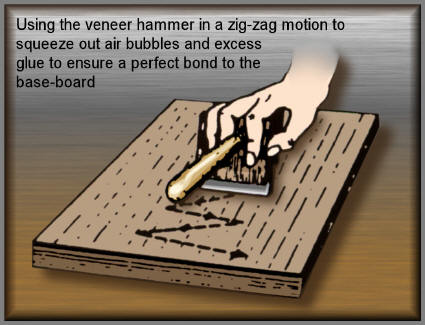 The zigzag pattern style recommended when using the veneer hammer |
|
| Tutorials Menu | |

